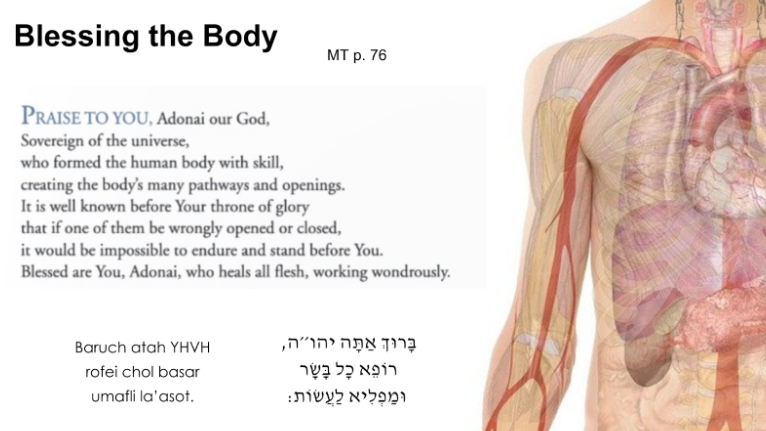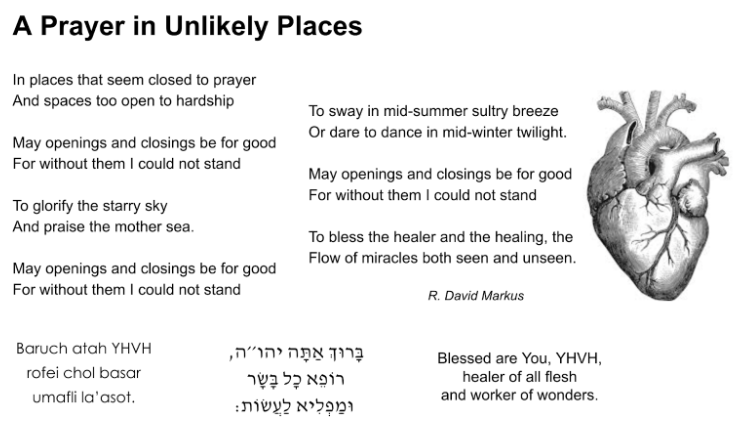I didn’t expect to spend Shavuot in the hospital recovering from a heart attack, but life is full of surprises.
I’m deeply grateful to all of the doctors, nurses, and hospital staff at Baystate who took good care of me. I’m also deeply grateful to R. David Markus for providing Shavuot services and late-night learning for our community over Zoom; to R. Jarah Greenfield and R. Seth Wax for providing emergency pastoral coverage; to Natalie Matus and the CBI Board for their stewardship of CBI; and to all of you who have reached out and who have held me in your prayers for healing.
In the hallway outside the CBI bathrooms, there’s a framed prayer written in calligraphy in Hebrew and English. It’s the blessing known in Hebrew as אשר יצר / Asher Yatzar. We say it sometimes during Shabbat morning services. Some people call it “The Bathroom Blessing,” because it’s the traditional blessing to recite after using the bathroom. (Yes, Judaism has prayers to sanctify everything, even that!)
Here’s the translation of this prayer that appears in Mishkan T’filah:
I also love R. Jeff Goldwasser’s English rendering of the blessing. His translation is a bit less literal than the original (but I think manages to capture its essence beautifully):
Blessed are You, YHVH our God, source of all being,
Who formed the human body with wisdom
and Who placed within us a miraculous combination
of organs and arteries, tissues and sinews.
Clearly, we would not be able to praise Your miracles
were it not for the miracle within us.
Blessed are You, YHVH,
healer of all flesh and worker of miracles.
This prayer took on new meaning for me after my strokes fifteen years ago. I love the reminder that our bodies are wondrously made, and that if one of our openings were to become wrongly closed (as in, e.g., a blood clot blocking a vessel that should be open) we would not be able to pray.
We need the open places to stay open, and the sealed places to stay sealed. And every day that we manage that — every day that our bodies carry us through this world — is a miracle. It’s a miracle that most of us take for granted most of the time, because it’s hard to live with constant awareness of how amazing it is that our hearts continue to beat and our lungs continue to breathe! But it’s a miracle nonetheless.
I love that our tradition offers us so many opportunities to recognize, and articulate gratitude for, the miracle of being alive. In the wake of my heart attack, this prayer has taken on extra resonance for me once again. I hope it speaks to you, too.
Here’s a poem that arises out of this traditional prayer:
All I can say is amen, amen, amen.
Blessings to all,
— Rabbi Rachel







